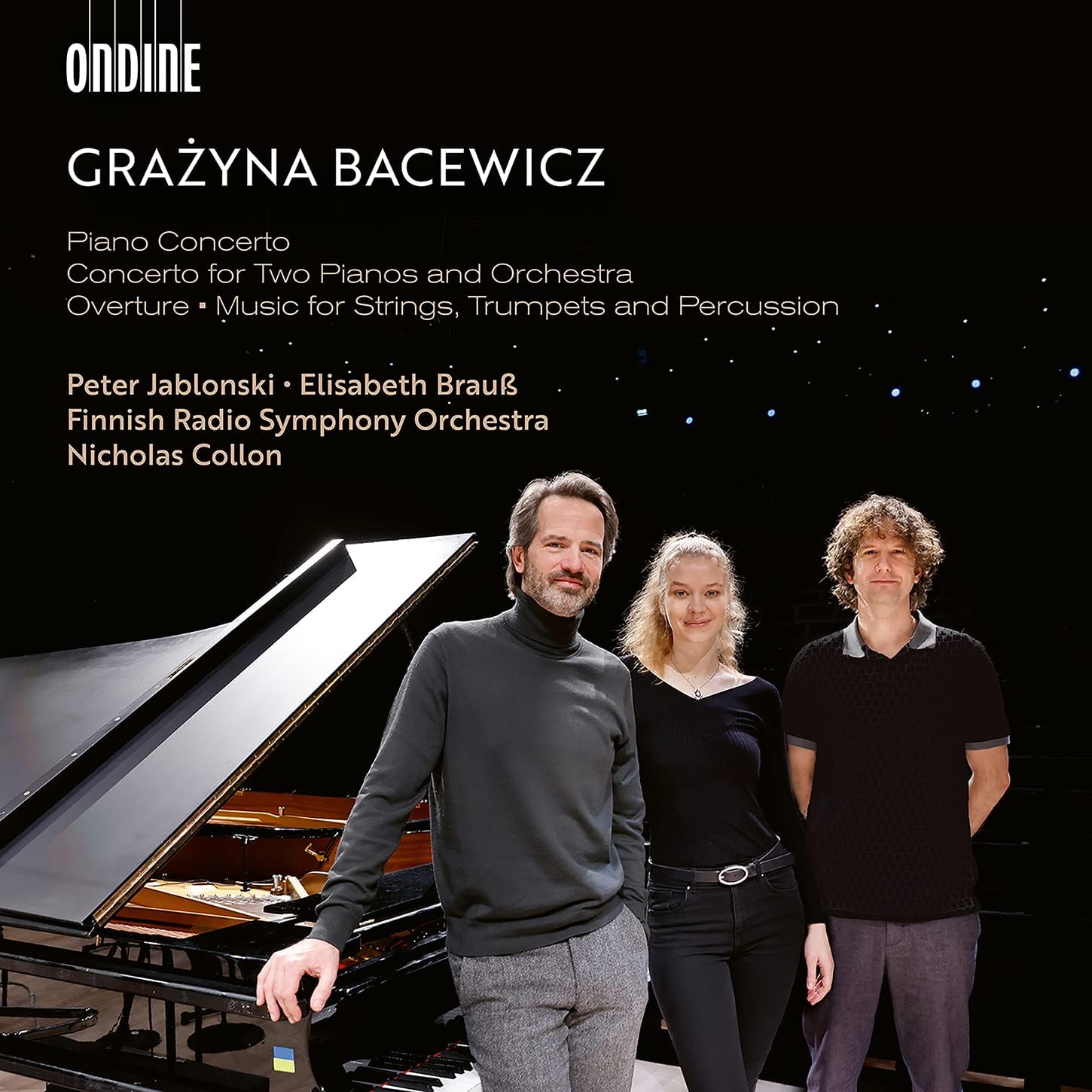Murray, Vlaams Radiokor, LPO, Gardner, RFH review - visual ‘interpretation’ blunts sonic brilliance in Szymanowski rarity
Sterling work from conductor and orchestra couldn’t save an incoherent evening
Chances are few enough to catch Polish composer Szymanowski’s densely brilliant 1920s score for a ballet about love in the Tatra mountains. Harnasie (Robbers) is so little known that we need a clear line through action and sung text. That all went out of the window in the projections of renowned choreographer Wayne McGregor and visual artist Ben Cullen Williams.





 Grażyna Bacewicz: Piano Concerto, Concerto for Two Pianos, Music for Strings, Trumpets and Percussion Peter Jablonski, Elisabeth Brauß (pianos), Finnish Radio Symphony Orchestra/Nicholas Collon (Ondine)
Grażyna Bacewicz: Piano Concerto, Concerto for Two Pianos, Music for Strings, Trumpets and Percussion Peter Jablonski, Elisabeth Brauß (pianos), Finnish Radio Symphony Orchestra/Nicholas Collon (Ondine)



